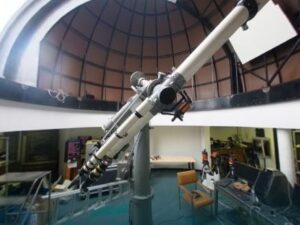Proving the Unprovable? Examining Scientific and Logical Arguments for the Existence of God
Theme
Proving the Unprovable? Examining Scientific and Logical Arguments for the Existence of God is a complex endeavour. The existence of God has been debated for centuries, with proponents on both sides presenting philosophical, scientific, and logical arguments. While empirical evidence may not be possible, intriguing perspectives from cosmology, consciousness studies, and metaphysics spark curiosity. This post explores scientific and logical arguments for God’s existence, examining the strengths and limitations of each. Can reason and faith intersect? Let’s delve into the discussion.

Aim
Proving the Unprovable? to challenge the empirical limits of modern science and revive a broader, metaphysical approach to knowledge that makes space for understanding God.
Scope
This work focuses on the philosophical underpinnings of modern Western science, its historical evolution, and its influence on contemporary thought, especially regarding metaphysical questions. It draws from philosophy of science, theology, and epistemology to highlight the epistemic gap between materialist science and spiritual understanding. While it does not aim to provide empirical proof of God, it critiques the assumption that empirical evidence is the only valid path to truth. The discussion is framed within the broader dialogue between science, faith, and human reason, particularly about Islamic perspectives on knowledge and the unseen.
The Enduring Quest for Divine Proof
Proving the Unprovable? The question of God’s existence has captivated human thought since the dawn of consciousness. Across cultures and throughout history, individuals and societies have grappled with the fundamental nature of reality, the origins of the cosmos, and the potential for a higher power. In an age increasingly shaped by scientific reasoning and logical inquiry, the desire to find tangible or irrefutable proof for the existence of God remains a powerful intellectual and spiritual driving force. This article will embark on a critical examination of the various attempts to demonstrate God’s existence through scientific and logical approaches, acknowledging the inherent challenges and limitations of applying empirical methodologies to a concept often defined as transcendent and beyond the material universe. We will also incorporate insights from the perspective of Allama Muhammad Iqbal, who obtained a PhD in philosophy in Germany, at the University of Munich, with his thesis focusing on “The Development of Metaphysics in Persia” in 1908. on the distinct domains of scientific inquiry and religious experience.

The Scientific Approach and the Challenge of Transcendence
- The scientific method, with its emphasis on empirical observation, experimentation, hypothesis testing, and peer review, has undeniably revolutionised our understanding of the natural world. Its success in explaining phenomena ranging from the subatomic to the cosmic has led some to explore its potential in addressing the question of God. However, the very attributes often ascribed to God pose a significant hurdle for scientific investigation.
- Transcendence and Immateriality: If God exists outside the physical universe and is not composed of matter or energy, direct scientific observation becomes impossible. Science is inherently equipped to study the material world and its interactions.
- Lack of Testable Hypotheses: Formulating a scientifically testable hypothesis about a being with attributes like omnipotence or omniscience proves exceptionally difficult. How could one design a repeatable experiment to verify unlimited power or infinite knowledge?
- The Problem of Empirical Evidence: Scientific evidence relies on sensory experience and measurable data. Events interpreted as divine intervention or evidence of God’s presence are often subjective, lack repeatability, and can frequently be explained by natural or psychological factors.
As Allama Iqbal astutely pointed out in The Reconstruction of Religious Thought in Islam
(https://www.google.com/search?q=https://archive.org/details/reconstructionofr00iqba),
Science operates within the realm of the observable. He emphasised that religious experience offers a different mode of knowing, a direct apprehension that transcends the limitations of purely empirical inquiry. Iqbal recognised the validity of science in its domain but cautioned against expecting it to provide answers to questions that lie beyond its methodological scope.
Logical Arguments for the Existence of God
While direct scientific proof may remain elusive, philosophers and theologians have advanced numerous logical arguments for God’s existence. These arguments rely on reason and abstract principles rather than empirical observation.
The Cosmological Argument: This argument, in its various forms (e.g., Kalam Cosmological Argument, Argument from Contingency), posits that everything that begins to exist has a cause. Since the universe began to exist, it must have a cause that is itself uncaused, often identified as God.

- Strengths: Appeals to the intuitive principle of causality and the apparent finitude of the universe.
- Limitations: Raises questions about the cause of God, potentially leading to an infinite regress. The premise that the universe began to exist is also subject to ongoing scientific and philosophical debate.
(https://plato.stanford.edu/entries/cosmological-argument/)
- The Teleological Argument (Argument from Design): This argument observes the apparent order, complexity, and fine-tuning of the universe and infers the existence of an intelligent designer responsible for it. Modern versions often focus on the precise values of physical constants necessary for life to exist (anthropic principle).
- Strengths: Draws upon the seemingly intricate and purposeful nature of the cosmos and biological systems.
- Limitations: Faces challenges from the theory of evolution by natural selection, which provides a naturalistic explanation for biological complexity. The fine-tuning argument is debated regarding whether the observed constants are truly improbable or if our understanding is limited.
(https://plato.stanford.edu/entries/teleological-arguments/)
- The Moral Argument: This argument suggests that the existence of objective morality – a universal sense of right and wrong – points to a moral lawgiver, often identified as God. If morality were merely subjective or culturally relative, it would be difficult to explain the widespread human intuition about certain actions being inherently wrong.
- Strengths: Addresses the human experience of moral obligation and the apparent universality of some moral principles.
- Limitations: Ethical naturalism attempts to ground morality in human nature or social constructs. Cultural relativism argues that moral principles vary significantly across societies. The question of whether objective morality necessitates a divine source remains a point of contention.
(https://plato.stanford.edu/entries/moral-arguments-god/)
- The Ontological Argument: This argument, famously proposed by Anselm of Canterbury, attempts to prove God’s existence through the very concept of God as the “greatest conceivable being.” It argues that if such a being only exists in the mind and not in reality, then a greater being (one that exists in reality) can be conceived, leading to a contradiction.
- Strengths: Intriguing logical exercise that explores the implications of the concept of God.
- Limitations: Heavily debated by philosophers, with critics arguing that existence is not a predicate that can be added to a concept to make it real. Immanuel Kant famously argued that “existence is not a predicate.”
(https://plato.stanford.edu/entries/ontological-arguments/)
While these logical arguments offer compelling intellectual frameworks and have been refined over centuries, their conclusions often hinge on foundational assumptions that themselves remain open to philosophical debate. They provide reasons to believe, but they rarely achieve the level of empirical certainty associated with scientific proof.
The Distinct Domains of Knowledge
A crucial point echoed by thinkers like Allama Muhammad Iqbal: the distinct nature of scientific and religious modes of understanding. Science seeks to explain the “how” of the natural world through observation and experimentation. Religion, on the other hand, often addresses the “why” questions of meaning, purpose, and ultimate reality – often through faith, intuition, and lived experience.
Attempting to force the question of God’s existence solely into the framework of scientific proof may be a category error, applying a methodology to a domain for which it is not inherently suited. As Iqbal suggested, religious experience offers a different kind of certainty, one rooted in personal encounter and transformative faith rather than empirical verification. This doesn’t diminish the validity of either approach within its sphere, but it underscores the limitations of expecting one to definitively prove or disprove the central tenets of the other.
The Role of Assumptions and Interpretation
Both scientific and logical arguments operate on underlying assumptions. Science assumes the uniformity of natural laws and the reliability of our senses and instruments. Logical arguments rely on the validity of certain logical principles and the clarity of the concepts being used. When it comes to the existence of God, the interpretation of evidence (whether empirical or logical) is often influenced by pre-existing beliefs and worldviews. What one person sees as compelling evidence for a designer, another might attribute to natural processes. What one perceives as a profound religious experience, another might explain through psychological or neurological factors.
Beyond Definitive Proof
The quest to definitively prove the existence of God through scientific or purely logical means remains a challenging and perhaps ultimately unattainable goal. While scientific inquiry has illuminated the intricacies of the universe and logical arguments have offered compelling intellectual frameworks, the nature of God, as often conceived, transcends the limitations of empirical observation and the inherent assumptions of philosophical reasoning.
The Quranic Version
- Allah is All-Encompassing (الإحاطة – Al-Ihata):
- Human Vision
- Verse: لَا تُدْرِكُهُ الْأَبْصَارُ وَهُوَ يُدْرِكُ الْأَبْصَارَ ۖ وَهُوَ اللَّطِيفُ الْخَبِيرُ
- Translation: “Vision perceives Him not, but He perceives [all] vision; and He is the Subtle, the Acquainted.” (Surah Al-An’am, 6:103)
- Explanation: This verse directly addresses the limitation of human sight in comprehending Allah. The verb تُدْرِكُ (tudriku) implies complete comprehension and encompassing. Allah is beyond being fully grasped by human vision, yet His knowledge and perception encompass all of creation.
- Omnipresence
- Verse: وَلِلَّهِ الْمَشْرِقُ وَالْمَغْرِبُ ۚ فَأَيْنَمَا تُوَلُّوا فَثَمَّ وَجْهُ اللَّهِ ۚ إِنَّ اللَّهَ وَاسِعٌ عَلِيمٌ
- Translation: “And to Allah belongs the east and the west. So wherever you [might] turn, there is the Face of Allah. Indeed, Allah is all-encompassing and knowing.” (Surah Al-Baqarah, 2:115)
- Explanation: The word وَاسِعٌ (Wasi’un) translates to “all-encompassing,” “vast,” or “immense.” This verse emphasises Allah’s universal presence and authority over all directions and places. His encompassing nature is linked to His vast knowledge.
- Absolute Power
- Verse: وَهُوَ الْقَاهِرُ فَوْقَ عِبَادِهِ ۚ وَهُوَ الْحَكِيمُ الْخَبِيرُ
- Translation: “And He is the subjugator over His servants, and He is the Wise, the Acquainted.” (Surah Al-An’am, 6:18)
- Explanation: While not directly using “all-encompassing,” the term الْقَاهِرُ (Al-Qahir) signifies the One who has absolute power and control over His creation. This implies an encompassing authority and dominion.
- Limitation of Perception (لا يحيطون به علما – La Yuhituna Bihi Ilma):
- Limitation of Human Understanding
- Verse: يَعْلَمُ مَا بَيْنَ أَيْدِيهِمْ وَمَا خَلْفَهُمْ ۖ وَلَا يُحِيطُونَ بِهِ عِلْمًا
- Translation: “He knows what is [presently] before them and what will be after them, but they do not encompass Him in [their] knowledge.” (Surah Ta-Ha, 20:110)
- Explanation: The phrase وَلَا يُحِيطُونَ بِهِ عِلْمًا (Wa la yuhituna bihi ‘ilma) uses the verb يُحِيطُونَ (yuhituna), related to الإِحَاطَة (al-ihata), meaning “they do not encompass” or “comprehend fully” Him in knowledge. Human understanding of Allah is limited; His knowledge is far beyond our capacity to fully grasp.
- The vastness of His Authority
- Verse: وَلَا يُحِيطُونَ بِشَيْءٍ مِنْ عِلْمِهِ إِلَّا بِمَا شَاءَ ۚ وَسِعَ كُرْسِيُّهُ السَّمَاوَاتِ وَالْأَرْضَ ۖ وَلَا يَئُودُهُ .حِفْظُهُمَا ۚ وَهُوَ الْعَلِيُّ الْعَظِيمُ
- Translation: “And they encompass not a thing of His knowledge except for what He wills. His Kursi (seat of authority) extends over the heavens and the earth, and their preservation tires Him not. And He is the Most High, the Most Great.” (Surah Al-Baqarah, 2:255 – Ayat al-Kursi)
- Explanation: Again, the phrase وَلَا يُحِيطُونَ بِشَيْءٍ مِنْ عِلْمِهِ (Wa la yuhituna bishay’in min ‘ilmihi) emphasizes the limitation of human knowledge regarding Allah’s knowledge. We can only know what He wills to reveal. The vastness of His Kursi, encompassing the heavens and the earth, further illustrates His immense authority and the limited scope of our comprehension.
- Beyond the scope of Science:
These verses collectively underscore the Quranic concept of Allah’s ultimate and all-encompassing authority. He is the sovereign whose knowledge and power extend over all things. While humanity can perceive the signs of His existence and attributes, the very nature of Allah is beyond the complete grasp of human senses and intellect. The use of terms related to الإِحَاطَة (al-ihata) highlights His comprehensive dominion, while the negation of human ability to encompass Him in vision or knowledge emphasises His transcendence and the limitations of our perception when it comes to the Divine. This understanding fosters a sense of awe, humility, and recognition of Allah’s supreme authority and majesty.https://mrpo.pk/human-creation/
Final Word
As our discussion and the insights of Allama Muhammad Iqbal suggest, religious faith often operates on a different plane of knowing, one rooted in personal experience, intuition, and a profound sense of connection to something beyond the material world. While science and logic can inform and interact with religious belief, they may not be the ultimate arbiters of its truth. The enduring human search for meaning and understanding may necessitate embracing the distinct yet potentially complementary roles of reason and faith in navigating the profound questions of existence. The “proof” of God, for many, lies not in a scientific equation or a flawless logical syllogism, but in the transformative power of belief and the lived experience of faith.
External Links:
Allama Muhammad Iqbal, The Reconstruction of Religious Thought in Islam:
https://www.google.com/search?q=https://archive.org/details/reconstructionofr00iqba
Stanford Encyclopedia of Philosophy – Cosmological Argument:
https://plato.stanford.edu/entries/cosmological-argument/
Stanford Encyclopedia of Philosophy – Teleological Arguments:
https://plato.stanford.edu/entries/teleological-arguments/
Stanford Encyclopedia of Philosophy – Moral Arguments for the Existence of God:
https://plato.stanford.edu/entries/moral-arguments-god/
Stanford Encyclopedia of Philosophy – Ontological Arguments:


